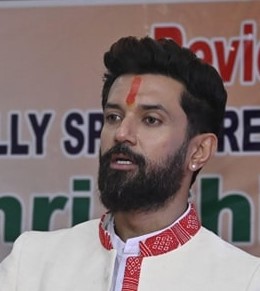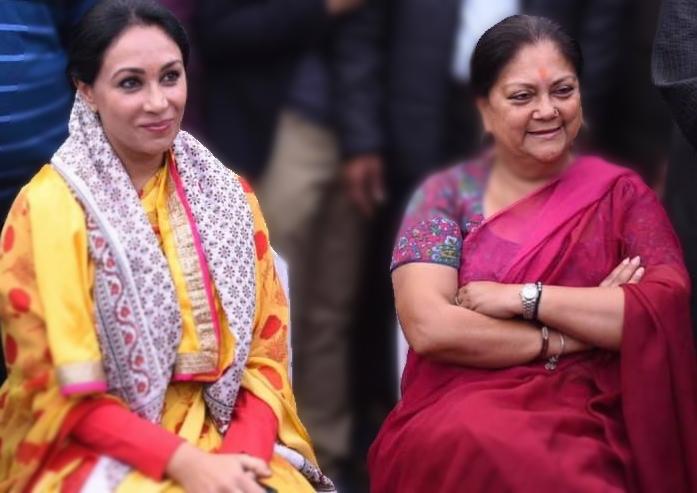Tridib Raman
Bureaucrats have now learned to pull the strings of the state’s ever-changing politics. Senior IAS officer Vijay Bhushan Pathak, who once served as Sikkim’s Chief Secretary, continues to act as the state’s de facto “Super CM” even after retirement. It is widely believed that “not a leaf moves” in Sikkim without his signal. Chief Minister Prem Singh Tamang seems to rely on him completely. When CM Tamang met Prime Minister Narendra Modi in Delhi on August 26 last year, the agenda was to invite the PM to Sikkim’s 50th foundation day celebrations in May this year. Sources claim PM Modi had agreed to attend, but Tamang made a special request: a one-year extension for Pathak to ensure the event’s grand success. The PM, as usual, avoided any firm commitment, only saying, “We’ll see.” Later, the Centre granted Pathak a three-month extension. Disappointed but undeterred, the CM devised a new tactic. He created a post for Pathak as ‘Chief Administrator-cum-Cabinet Secretary’ granting him a rank equivalent to the Union Cabinet Secretary (effectively a Cabinet Minister’s status). Overnight, bureaucrats were instructed to consult Pathak on all key decisions. Sources add that even the current Chief Secretary, who is junior to Pathak, has no qualms taking orders from the “Super CM.” Meanwhile, whispers in the state still revolve around a ₹15,000 crore scam linked to the disinvestment of Sikkim Energy Limited during Pathak’s tenure as Chief Secretary. Yet, CM Tamang continues to place blind trust in his favored bureaucrat.
Will Yash Raj Challenge Chirag?
Tridib Raman

Chirag Paswan’s charismatic politics might now face a challenge from his cousin, Yash Raj Paswan. Yash Raj is the son of Chirag’s uncle, Pashupati Paras, and has recently returned to India after completing his studies abroad. Like Chirag, he also possesses an attractive personality, speaks thoughtfully, and uses refined and sensible language—qualities that are certainly enough to appeal to his fellow Paswan voters. National Lok Janshakti Party chief Pashupati Paras recently announced his decision to part ways with the NDA, and it seems possible that he might move towards joining the INDIA alliance. Pashupati Paras has reached an age where he appears eager to pass on his political legacy to his son, Yash Raj. It is being speculated that Yash Raj might contest the upcoming Bihar Assembly elections from his father’s Alouli seat. Paras has been an MLA from this seat seven times. Reports also suggest that Paras has been preparing the Alouli seat for his son for quite some time. Could Yash Raj be a warning bell for Chirag?
Storm in RJD Over the “Sanju-Manju” Duo
Tridib Raman

First, let’s unravel the mystery: Who are “Sanju-Manju” in Bihar’s political arena? “Sanju” refers to Sanjay Yadav, often dubbed the apple of Lalu Yadav’s son Tejashwi Yadav’s eye. Despite hailing from Haryana, Sanjay is said to know every inch of Bihar’s political landscape. Tejashwi, now the face of the INDIA alliance in Bihar, trusts him blindly. With Tejashwi’s rising prominence, Sanjay has been frequently shuttling to Delhi for backroom negotiations. Sources reveal he has unofficially handed over the RJD’s Bihar office to his brother, who now oversees ground surveys, gathers intelligence on potential candidates, and gauges the impact of the party’s social and digital media strategies. This has deeply troubled the anti-Tejashwi faction within the RJD. Sources claim that Tejashwi’s reliance on “Sanju” (Sanjay Yadav) and “Manju” (Rajya Sabha MP Manoj Jha) has pushed Lalu Yadav’s elder daughter, Misa Bharti—a Lok Sabha MP and her parents’ favourite—to sound the bugle of rebellion. Misa demands a clear division of responsibilities between herself and Tejashwi in running the party. If Tejashwi is projected as Bihar’s CM candidate, she argues, she should formally take charge as the RJD’s national president to lead the organization. Misa, citing her dual experience in both the Rajya Sabha and Lok Sabha, insists she is better positioned to coordinate the party’s operations. With tensions escalating, Lalu and Rabri Devi are now mediating to mend fences between Tejashwi and Misa.
Sahni can’t tolerate BJP anymore
Tridib Raman
Since the INDIA alliance appointed Tejashwi Yadav as the head of its coordination committee for the upcoming Bihar elections, the state’s political landscape has started shifting. The latest development involves the VIP Party (Vikassheel Insaan Party), whose leader Mukesh Sahni is being courted persistently by BJP leaders. Sahni has been a prominent leader of Bihar’s Mallah voters. Although he lost his own election last time, four candidates from his party emerged victorious. However, in a twist of events, BJP managed to poach three of these four MLAs (one MLA passed away suddenly). Sahni still hasn’t recovered from this betrayal and has been signaling his inclination towards the INDIA alliance for quite some time. In the previous assembly elections, Sahni contested as part of the BJP-JDU alliance, securing 11 seats under coalition agreements, out of which four of his candidates won. However, after losing his own election, Sahni had to enter the assembly through the Legislative Council route, where he became a minister. But since his Legislative Council term lasted only a year and a half, he had to leave the council of ministers. The BJP’s betrayal still stings him deeply. This time, it seems almost certain that Sahni and Paras will align with the INDIA alliance alongside RJD, Congress, and the Left Parties. Sahni holds significant influence in districts like Muzaffarpur, Darbhanga, Khagaria, Motihari, and Jhanjharpur. Some prominent Muslim leaders have also joined Sahni’s party. It is believed that Sahni’s party might secure around a dozen seats from Tejashwi this time. Tejashwi’s RJD is expected to contest 115-120 seats, while Congress might get 45-50 seats. Overall, the INDIA alliance could pose a formidable challenge to the BJP-JDU coalition in this election.
Clash of the Queens?
Tridib Raman

“There must be something that keeps our legacy alive” — Despite the BJP’s central leadership sidelining her, Vasundhara Raje Scindia, saffron queen of Rajasthan’s political battleground, still commands undeniable influence in the state’s politics. During a recent visit to her constituency, Jhalawar, Raje unleashed her fury on officials, reigniting questions about her clout. The storm began with a social media post by Raje, where she cornered her own party’s state government over Jhalawar’s worsening water crisis. She demanded answers: “Where did Jhalawar’s share of ₹42,000 crore allocated under the Jal Shakti scheme disappear? How was this fund utilized?” The post forced Chief Minister Bhajanlal Sharma into damage control mode, directing senior officials to brief Raje immediately. Ironically, CM Sharma himself was supposed to attend the Jhalawar event but cited “prior commitments” to skip it. When officials present at the venue informed Raje, “The CM isn’t coming, but Maharani Sahiba (Deputy CM Diya Kumari) will attend,” Raje snapped: “Which Maharani?” The reply — “Deputy CM Diya Kumari”— left her fuming. The episode underscores the simmering tension between Rajasthan’s two “queens.” After all, as the saying goes, “Two swords cannot share a scabbard, two lions cannot rule one jungle, and a state cannot bow to two Maharanis.”
Power Grabs in Delhi
Delhi’s influential minister, Pravesh Verma, is on a relentless mission to cement his image as a hands-on “mass leader.” His office is perpetually crowded with constituents seeking favours, and Verma obliges by directly calling officials from relevant departments to address their grievances. This habit, however, has ruffled feathers within his own government. A fellow minister, exasperated by Verma’s overreach, complained to CM Rekha Gupta: “This is interference! How can he bypass me and call my department’s officials?” Before a cabinet meeting, CM Gupta discreetly pulled Verma aside and advised: “I’ve given you free rein in your department, but don’t encroach on others’ turf. People resent it. If you have concerns, come directly to me.” Verma, quick to decode the subtle warning, retreated—for now.
